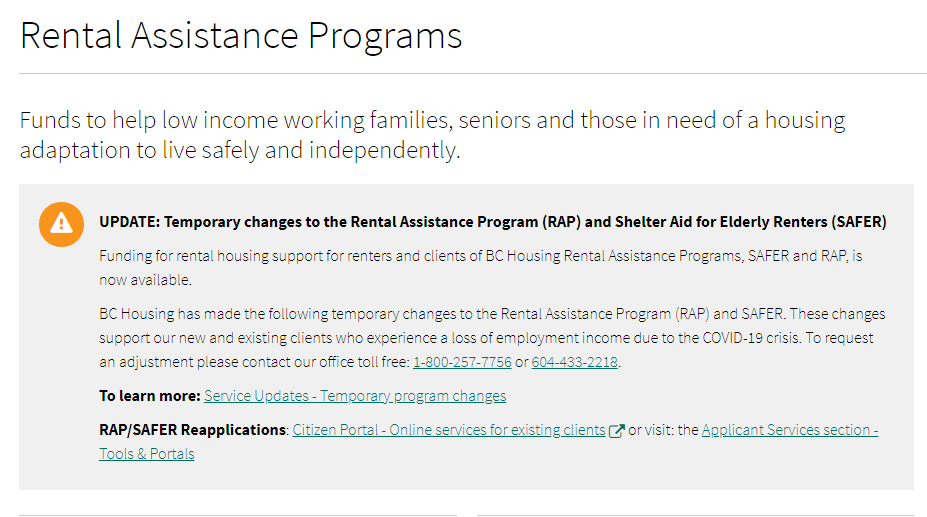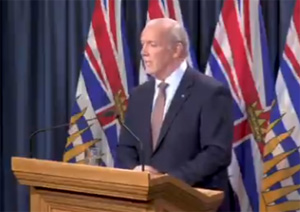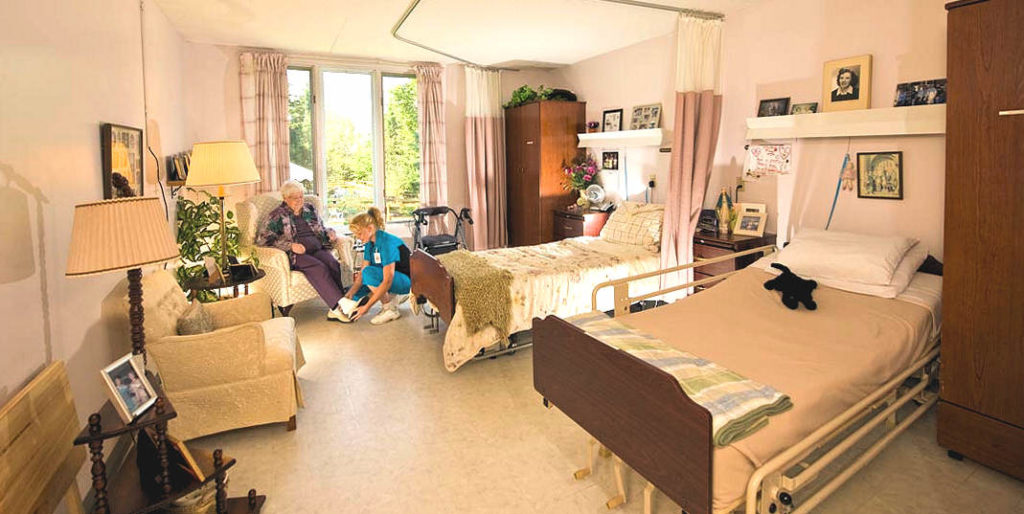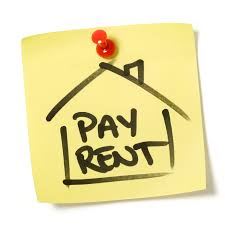Monday April 20, 2020 ~ BC
by Mary Brooke ~ West Shore Voice News
Some people who wish to apply for the BC Temporary Rental Supplement Program of $500 per month (for three months) rental support during COVID-19 in BC may be surprised that they are not eligible. That includes seniors who already receive some rental support through the Shelter Aid for Elderly Renters (SAFER) program, and others who are low-income through the Rental Assistance Program (RAP).
The Ministry of Municipal Affairs and Housing says in response to this: “People who are receiving rental assistance through the Rental Assistance Program for low-income working families, and SAFER, for seniors over the age of 60, can contact BC Housing for an adjustment if some or all of their income comes from employment and that income has decreased or stopped as a result of COVID-19.”
But in most cases, this would not come close to $500, and in some cases there is no adjustment granted at all. Unlike for recipients of the BC Temporary Rental Supplement (where the renter pays $500 less for their rent, while $500 is paid directly to the landlord), even SAFER and RAP recipients are still expected to pay the full rental amount — which might be more difficult to accomplish during the financial disruptions of COVID-19.

And while the Ministry of Municipal Affairs and Housing says that “people who already receive rental support may also be eligible for other COVID-19 supports”, their prime example is for people already on forms of social assistance, such as the $300-monthly COVID-19 crisis supplement for people on income assistance or disability assistance: https://news.gov.bc.ca/releases/2020SDPR0012-000620
There is a group being missed in all this — the self-employed worker over 60 who (on the advice of their accountant or other financial professionals) may not be claiming CPP or OAS yet as they are still working. Even if they are receiving a SAFER subsidy, the sudden impact on income should allow them to apply for $500 in additional monthly rental support (for the three months) the same as everyone else. The consideration for sudden economic impact is separate from any previous circumstances that might be calculated into a SAFER payment.
BC leadership with freezing rent increases and halting evictions:
The Ministry says that “to protect all renters during this emergency, the Province has also frozen rent increases and halted evictions,” which of course helps many renters, and is probably much appreciated by many renters in BC.
In fact, BC was the first (and is possibly still the only) province to rapidly declare ‘no evictions, no rent increases’, and quite promptly in mid-March when the pandemic became official.

Premier John Horgan himself expressed instant and gut-felt ire at the idea that landlords would use a pandemic crisis to continue imposing the roughest part of their business in a manner of ‘business as usual’. That is one example (of many emerging during COVID-19) where not only the power of government has trumped ‘business as usual’, but might possibly set a tone for improved restrictions many areas of the corporate world where property owners and also financial institutions rule the roost.
Federal supports topped up in BC:
The federal Canada Emergency Response Benefit (CERB) program has been a helpful jump-off point for the provinces — especially here in BC where Premier Horgan said from the start that as soon as CERB was announced that BC would top up any obvious gaps (see current BC supports during COVID-19).
CERB itself has had its eligibility criteria revised a few times already. When it comes to the BC Renter’s supplement, if someone has already qualified for CERB, then they automatically qualify for the rental supplement (oh, unless of course you’re getting SAFER or RAP).
It seems with both federal and provincial assistance in response to the significant economic emergency due to COVID-19, that people who are self-employed, getting by in the gig economy, who are adult students also working gig or part-time, and seniors, are presumed to be managing somehow. The federal NDP in particular have been doing a good job of pointing this out.
However, it is not only people within tightly-defined social-support programs (low-income and disability) who are vulnerable in this pandemic which the Public Health Officer says we can expect to see ongoing for at least another year (until there is a vaccine).

Cost of grocery and delivery:
What affects everyone right now — but seniors in particular, is the sudden skyrocketing of retail prices for essentials like groceries and household items. While perhaps not quite reaching the level of ‘price gouging’, most prices of items in the proverbial ‘basket of groceries’ (in cost of living calculations) have noticeably increased in stores in the last few weeks. This might be defended by retailers as their way of moderating how quickly products fly off the shelves, but for seniors on fixed incomes they are seriously impacted by these sudden price increases more than others.
Most seniors do not have the lifestyle flexibility to pick up an extra gig nor the mobility to ‘shop around’ for best-prices as they may have done pre-COVID (something few people are doing during a pandemic, what with the overhead of fresh mask and gloves for every shopping trip and the need to limit one’s time to be exposed to community spread of COVID-19 in retail settings).
There is also a less tangible cost — but real nonetheless — of many seniors requiring someone to accompany them, which takes time to organize and reduces the possibility of social distancing.
Many stores now specify that a designated hour (usually the first hour) of open shopping hours are for seniors only. That is apparently when the store is the most well stocked at the start of the day, and possibly at its cleanest (before the store has been traversed by customers and staff for many hours). And while this is unconfirmed, it’s also possible that product pricing in that hour is different — for better or worse.
Filling the cracks for seniors:
This recognition of how things are different for seniors is just one more example where a few more ‘cracks’ need to be filled. The good news is that this particular oversight shines a light on where governments can still do better. And that light is illuminating in particular how seniors are not the priority recipients of almost any of the COVID-19 social safety net programs that have been rolled out over the past month or so.
There should not be an assumption that even seniors with CPP or OAS (receipt of which might be not active yet, or already insufficient) have enough to get by. The cost of living for seniors has gone up in ways that are in addition to what others are experiencing — such as the cost of groceries on a fixed income, but also probably more reliance on delivery services, services around the outside of the home, transportation assists, and buying or upgrading technologies by which to fend off social isolation. While many people are open-hearted to their neighbours, it is not a time when people freely are out and about physically in their neighbourhoods to help others (and younger adults are understandably often taking care of children and their own household and employment-from-home needs); so the need for deliveries increases for seniors, and that is expensive.
Thanks to COVID-19, our culture seems to be showing an attitude or belief that seniors are already well-enough taken care of, or don’t need help (if they are seen to be financially stable). Or worse, that as a society there is tacit permission to neglect seniors in favour of those who work (i.e. active taxpayers). While we hear the words from politicians that our elders are a treasured resource of history and wisdom, as a society we really aren’t paying for that resource — we are taking it free if and as it comes, with polite lip-service.

And we are still ‘okay’ with warehousing seniors in long-term care homes where they’ve been sitting ducks for infection in this pandemic, though this acceptance is likely soon to meet with loud opposition given the number of outbreaks in long-term care homes and assisted living facilities).
Supports for housing (rental, as above) and also those who hold mortgages, have been attended overall relatively well in BC at this early phase of COVID-19. But how long will the supports last, and/or how soon will changes be made as the pandemic drags on through 2021? Until there is a vaccine, the economic impacts against all British Columbians will continue to grind away at financial stability, viability and success.
LINKS ======
BC Temporary Rental Supplement Program
More information on supports available to British Columbians is available at https://news.gov.bc.ca/factsheets/bc-takes-steps-to-support-people-businesses-during-covid-19-pandemic



